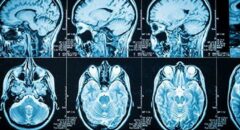
If you’ve experienced so-called “senior moments,” brain blips or brain freezes, you’re not alone.
Many people worry about their future brain health. So many, in fact, that the American Academy of Neurology suggests that everyone consider 12 factors that influence long-term brain health.
“Neurologists are the experts in brain health, with the training and insight needed to help you keep your brain in top shape throughout life,” Dr. Carlayne Jackson, president of the American Academy of Neurology (AAN), said in a news release.
In a recent article in the journal Neurology, a team led by Dr. Linda Selwa of the University of Michigan in Ann Arbor recommended 12 tips to start conversations with your healthcare provider about ways to keep your brain healthy.
Questions to Ask Yourself and Tell Your Doctor
Your health is a lifelong journey, and regular discussions with your doctor can help you stay on track. Being proactive about key areas of your health ensures you get the care and support you need. Below are essential questions to ask yourself and bring up with your doctor at your next visit.
Am I Getting Enough Sleep?
Questions to ask yourself:
- Do I wake up feeling rested?
- Do I struggle to fall asleep or stay asleep?
- Am I experiencing excessive daytime sleepiness?
- Do I frequently nap during the day?
- Do I have trouble sleeping due to pain, stress, or shift work?
What to discuss with your doctor:
Getting enough quality sleep is essential for brain health, energy levels, and overall well-being. Talk to your doctor about sleep disorders such as insomnia, sleep apnea, or restless legs syndrome. If you experience chronic fatigue, ask about strategies to improve sleep hygiene and whether a sleep study might be beneficial.
RELATED: 5 Lifestyle Changes You Can Make to Improve Your Brain Health
Should I Be Concerned About My Mental Health?
Questions to ask yourself:
- Have I felt unusually sad, anxious, or overwhelmed lately?
- Do I have trouble concentrating or feeling motivated?
- Have I lost interest in activities I once enjoyed?
- Do I feel socially isolated or lonely?
What to discuss with your doctor:
Your mental health is just as important as your physical health. Depression, anxiety, and stress can impact brain function and overall well-being. Be open with your provider about your mental state, even if they don’t bring it up. If necessary, ask about therapy, medication options, or lifestyle changes that can improve your mental health.
Am I Getting the Right Nutrition?
Questions to ask yourself:
- Am I eating a balanced diet with enough protein, fiber, and healthy fats?
- Do I consume enough fruits and vegetables?
- Should I take any supplements or vitamins?
- Do I have any food allergies or intolerances?
What to discuss with your doctor:
Your diet plays a significant role in brain function, energy levels, and disease prevention. Ask your doctor if you should make dietary changes based on your medical history. If you have specific concerns about weight management, digestive health, or nutrient deficiencies, discuss whether you should see a dietitian.
How Often Should I Exercise?
Questions to ask yourself:
- Am I getting at least 150 minutes of moderate exercise per week?
- Do I incorporate strength training, flexibility, and balance exercises?
- Do I feel physically strong and independent in my daily activities?
What to discuss with your doctor:
Regular physical activity supports cardiovascular health, muscle strength, and brain function. Discuss your exercise routine with your doctor, especially if you have joint pain, mobility issues, or other health conditions that might affect your ability to stay active.
RELATED: Brain Aging: What’s Normal & When Should We Worry?
Should I Be More Social?
Questions to ask yourself:
- Do I regularly connect with friends and family?
- Do I feel like I have enough emotional and social support?
- Am I experiencing feelings of loneliness or isolation?
What to discuss with your doctor:
Social connections are vital for emotional and brain health. If you feel isolated, your doctor may recommend support groups, community resources, or counseling. Strong social ties can help reduce stress and even improve cognitive function as you age.
Am I Taking Steps to Prevent Injuries and Trauma?
Questions to ask yourself:
- Do I always wear seatbelts and helmets when appropriate?
- Do I practice firearm safety at home?
- Have I taken steps to prevent falls at home, such as removing trip hazards?
- Do I follow safety guidelines when using ATVs or watercraft?
What to discuss with your doctor:
Injury prevention is key to maintaining long-term health. Your doctor can advise you on best practices for fall prevention, home safety, and occupational hazards.
Am I Managing My Blood Pressure?
Questions to ask yourself:
- Have I been diagnosed with high blood pressure?
- Do I monitor my blood pressure at home?
- Do I experience dizziness or headaches?
What to discuss with your doctor:
High blood pressure is a major risk factor for heart disease and stroke. Discuss medication options, lifestyle changes, and whether you should monitor your blood pressure at home. If you have concerns about treatment side effects, let your doctor know.
Do I Have Any Genetic or Metabolic Health Risks?
Questions to ask yourself:
- Do I have a family history of diabetes, high cholesterol, or heart disease?
- Am I struggling to maintain healthy blood sugar levels?
- Do I need genetic testing for neurological conditions?
What to discuss with your doctor:
Your doctor can assess your risk for conditions such as diabetes, Alzheimer’s, and heart disease. If necessary, they may recommend blood tests, lifestyle changes, or medication to help manage risk factors.
Can I Afford My Medications and Treatments?
Questions to ask yourself:
- Am I struggling to pay for my prescriptions?
- Have I had to skip medications due to cost?
- Will my insurance coverage change soon?
What to discuss with your doctor:
Medication costs can be a major burden. Ask your doctor about generic alternatives, patient assistance programs, or Medicare supplement plans that could help lower costs.
Am I Protected Against Infections?
Questions to ask yourself:
Am I up-to-date on vaccines such as flu, COVID-19, pneumonia, and shingles?
Do I have any occupational or travel-related infection risks?
Should I get screened for sexually transmitted infections?
What to discuss with your doctor:
Your doctor can provide an age-appropriate immunization schedule and discuss risks related to infections. If you travel frequently, you may need additional vaccines or precautions.
Am I Avoiding Harmful Exposures?
Questions to ask yourself:
- Do I smoke, drink excessively, or use nonprescription drugs?
- Do I drink well water or live in an area with air or water pollution?
What to discuss with your doctor:
Every visit is an opportunity to address substance use and environmental exposures. If you need help quitting smoking or reducing alcohol intake, your doctor can recommend support programs and treatments.
Do My Social and Economic Circumstances Affect My Health?
Questions to ask yourself:
- Do I have safe housing and reliable transportation?
- Can I afford nutritious food and health care?
- Do I feel safe at home or work?
What to discuss with your doctor:
Social factors like housing, income, and access to care can significantly impact health. If you are facing challenges, your doctor may refer you to social services or community resources.
Final Thoughts: Take Charge of Your Health
Advocating for your health means asking the right questions and working with your doctor to find solutions. By addressing these topics, you can take proactive steps toward better brain and overall health.
As Dr. Selwa stated in an American Academy of Neurology news release:
“Continued advocacy by neurologists, including efforts to fund scientific research and improve access to health care, improves brain health on a national level. Our article shows there are many ways to improve brain health individually. Resolving to improve your brain health in the new year is a great start.”









